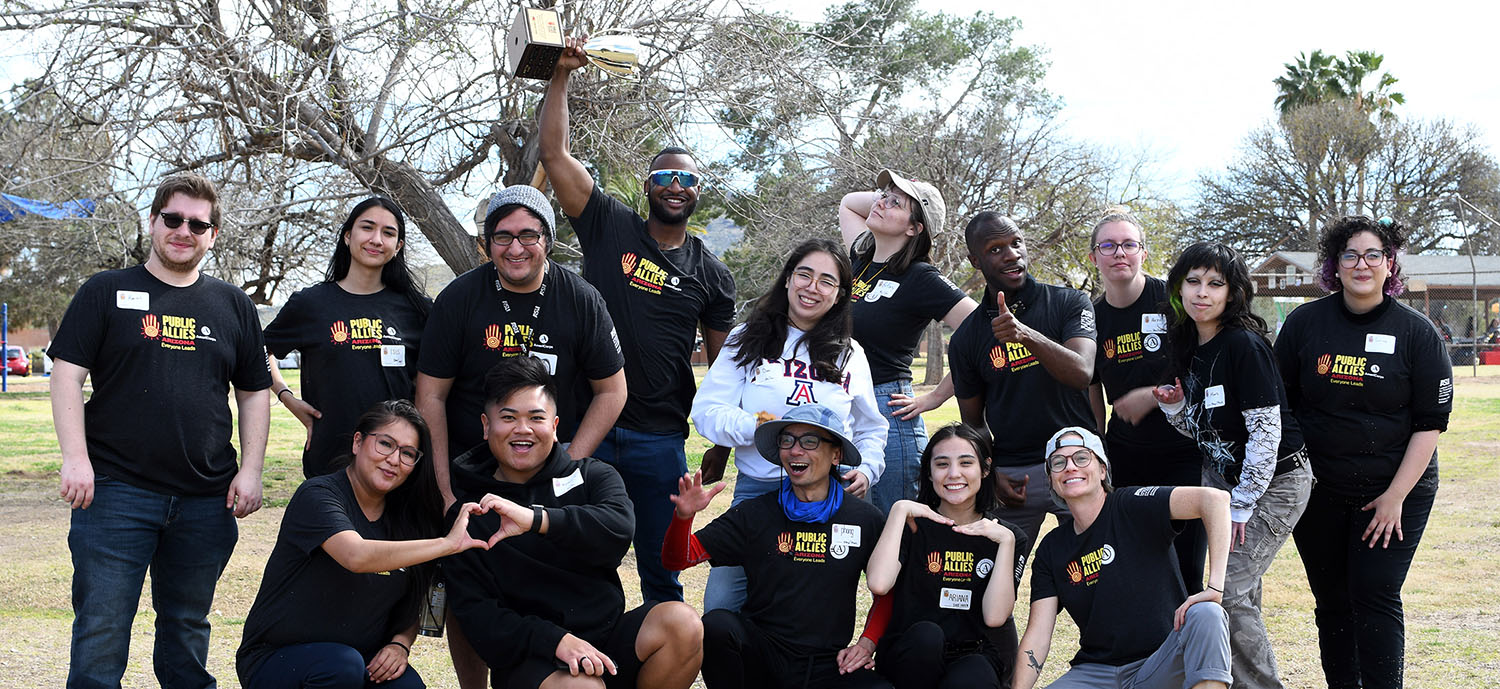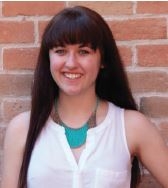 Annalise Parady
Annalise Parady
Arizona Neighborhood Transformation, 2013-2014; Tumbleweed Center for Youth Development, 2014-2015
What’s your story?
In my last day of class on my last day of college at ASU, the former CEO of Public Allies happened to be a guest speaker. As he spoke about the program and its values, it felt as though everything aligned with both my personal beliefs and the work that I wanted to do. I applied immediately, and then enjoyed it so much that I did a second year of the program. I’m now pursuing my Masters of Social Work at Boston College.
What did your nonprofit work look like?
At Arizona Neighborhood Transformation, I was a Community Developer placed in Guadalupe. I was trained in Asset Based Community Development and oversaw a bi-weekly tutoring program for 25-30 youth and developed and implemented a children’s summer program. I managed the volunteers for both programs. At Tumbleweed Center for Youth Development, I worked with unaccompanied migrant youth in the Casa de Sueños program. I coordinated volunteers to provide over 1,000 hours of service, conducted a youth board for them to participate in activity planning, and escorted the youth for family reunification.
What did you do for your service projects?
In total, I worked on 4 service projects in my two terms. During my second term, I coached a team of Allies to develop a project in partnership with Neighborhood Ministries. They created a multimedia gallery showcasing the obstacles and accomplishments of first-generation college students. The gallery utilized video, audio, photographic, and infographic representations of stories gathered from students, and was highlighted in a gallery opening event organized by the team.
What was your favorite training and learning?
The article, “Unpacking the Invisible Knapsack” was used as an introduction into conversations on privilege and power. We read the same article in one of my Masters of Social Work courses. In class, I missed the open, honest, and safe discussion that accompanied it with Public Allies, where we had our chairs in a circle and tackled the subject as a community head-on.
Looking back, what are you most proud of?
The relationships built within the cohorts that I served in. I’ve seen us continually support each other as we move forward in the work of building community.
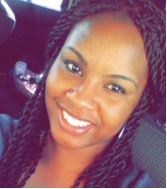 Ayana Rainey
Ayana Rainey
Central Arizona Shelter Services: Vista Colina Family Shelter, 2015-2016
What’s your story?
Before joining the program, I was attending school and wondering what I was going to do with my future. I have many talents and interests, but couldn’t pinpoint what exactly my calling was. I also felt misunderstood by the people that surrounded me and struggled to find like-minded people that shared the same dreams, passions, goals, and experiences. I applied because I wanted to find a sense of direction.
What did your nonprofit work look like?
I served as the Family Enrichment Coordinator, bringing programs and resources to the shelter for the families. I recruited volunteers to offer these services, and helped families identify and implement healthy living practices. I hosted a number of events for the families to bond and spend quality time with their young ones.
What did you do for your service project?
We helped conduct Terros’ Cesar Chavez Behavioral Health Conference. The work focused on screening and approving presenters, organizing the schedule and rooms for the presenters, and gathering volunteers and moderators for the workshops.
What was your favorite training and learning?
My favorite trainings have been about systemic oppression and deliberation vs. debate– learning how to best communicate. I also enjoyed attending the Lodestar Nonprofit Conference on Sustainability Strategies and the Summit on Volunteerism and Service Learning. The training days have been filled with information that I have been longing for. I got such joy from learning and being surrounded by intelligent, diverse, and enthusiastic individuals.
Looking back, what are you most proud of?
I’m proudest of finding my way. Before I started the program, I felt lost, but after starting my work at the shelter and attending the activities and learning opportunities, I have started to see my future a little clearer. I’ve narrowed my interests to pursue a BA in Social Work and want to do Case Management until I graduate. I’m proud of myself for making the sacrifice to ensure that my future is bright!
 Cameron Harris
Cameron Harris
The Arizona Spinal Cord Injury Association, 2014-2015
What’s your story?
Before I became an Ally, I was a full-time student at ASU and working at a pizza place. An Alumna of the program came into the pizza place one day and we started talking about my desire to have a meaningful impact in my community while gaining real world experience that would be beneficial after college. She recommended that I check out the program, and I was accepted. I’m still employed with the organization, am now the Program and Resource Coordinator, and am going to be pursuing a Law Degree next fall.
What did your nonprofit work look like?
My role started out as the Volunteer Coordinator, with goals to create a sustainable volunteer program, gain at least 30 new volunteers and have them serve over 500 hours. After recognizing my interests and skills, my role transitioned into social media, database, and website management for specific programs. I also created a new disability-minded newsletter that has grown popular within the community.
What did you do for your service project?
My group partnered with the Vista Colina Family Shelter of Central Arizona Shelter Services to plan a Health Fair for the residents. We partnered with Gregory Fresh Farmer’s Market to talk about cooking healthy meals on a budget, finding assistance programs for fresh foods, and overall health and wellness. We also worked with the kids at the shelter on beautification projects on the campus—planting trees, creating a mural, and revamping the playground area.
What was your favorite training and learning?
Some of my favorite trainings involved learning about systemic oppression, techniques to reduce stress and avoid burnout, and various ways to stay connected to the nonprofit community. One of the most valuable lessons I took away was on the power of community—I knew that I could rely on the people in the room to lift up and encourage me and that they loved me for me.
Looking back, what are you most proud of?
I’m proudest of completing the program. In the beginning, I struggled a bit to get going and become a good worker. I was not yet good at time management and had a loose grasp on what it meant to work a 9-5 job. Through my time in the program, I experienced tremendous growth as a professional and a person. I walked away better than when I came in.
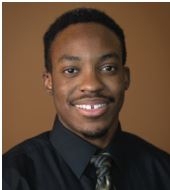 Jehryn Plunkett
Jehryn Plunkett
Phoenix Day, 2014-2015; Valley of the Sun United Way, 2015-2016
What’s your story?
The idea of joining Public Allies was nowhere on my radar. I have an Associate of Arts degree in Graphic Design and had experience in customer service and design work, but was lacking confidence when it came to my ability to be successful in a professional setting. I was working as an intern screen printing t-shirts, when my supervisor heard they were recruiting for Allies and he persistently pushed me to apply. I went through the rigorous application process, was accepted, and then went on to do another year.
What did your nonprofit work look like?
At Phoenix Day, I was the Community Engagement and Awareness Coordinator. I designed and produced collateral materials for event and program advertisements to increase participation. I helped manage the social media pages and maintain areas of the website. I also did work with volunteer management. At Valley of the Sun United Way, I was the Community Impact Coordinator for data and evaluation in the Ending Homelessness Initiative. I worked on the Project Connect event planning and execution, collecting and analyzing the data for guests, providers, and the overall event, to make improvements.
What did you do for your service project?
My first year, our group partnered with the Desert Botanical Garden and created a meandering stream to collect and reroute monsoon rainwater to water fruit trees. We also dug small reservoirs in the parking lot medians to collect water that would be pooled after a storm , blocking several parking spots from use. We engaged a group of volunteers including high school students.
What was your favorite training and learning?
The retreats! They are times to grow closer to the rest of the cohort and that support system is necessary for making it through the program. I really enjoyed learning more about refugees, vegetarian/veganism, gentrification, and social justice during the training days.
Looking back, what are you most proud of?
I had the opportunity to attend the Public Allies National Leadership Institute as an Alum, which was great because only a select few who are nominated and invited get to go, and it was an amazing experience. I am proud of the progress I have made personally and professionally while going after my goals and stepping outside of my comfort zone.
 Rebecca Rivas
Rebecca Rivas
Lodestar Day Resource Center, 2015-2016
What’s your story?
Before Public Allies, I studied Psychology and Criminal Justice at ASU and was active in the multicultural sorority Lambda Sigma Gamma. After graduation, I thought about continuing to work at a shop near campus, but knew that it wouldn’t help me grow or get the experience I needed to pursue a Master’s Degree. A friend told me great things about Public Allies, so I decided to apply. He spoke about the diversity of the program and I knew it was what I needed. It was the best decision I made my senior year of college.
What did your nonprofit work look like?
I was the Engagement Programs Coordinator and work on developing and implementing a process for community groups to host meetings, classes, and workshops to empower and meet the needs of our clients. I have also developed a process for recruiting, training, and managing volunteers that work in the five different areas of the Lodestar Day Resource Center
What did you do for your service project?
My group partnered with Arizona Neighborhood Transformation and the Guadalupe Learning Lab, working with their staff to create a space that will foster a love of learning for all children served during their afterschool and summer tutoring programs. We revitalized and reorganized the space so that the tutoring sessions could be more effective and conducive to learning.
What was your favorite training and learning?
I’ve enjoyed the training and discussions related to social justice issues, because they have opened my eyes to the issues our communities are facing today. I have learned how I take part in the cycle of oppression and what I can do to take a stand against it. I have learned about the different movements that have swept the country and how I can get involved to make my community a better and safer place. My social consciousness has been heightened and I have been provided with resources and tool to make a difference.
Looking back, what are you most proud of?
I planned and organized projects around the Human Services Campus for 120 volunteers for the ASU Day of Service. I had never planned an event of this capacity before and even though it was a daunting task, I took on the challenge. It was a full day of activities and running around the campus to make sure each group had everything that they needed. I was drained a the end, but felt accomplished for planning such a success.
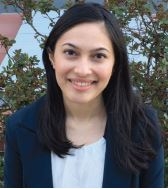 Reema Mistry
Reema Mistry
American Lung Association in Arizona, 2013-2014
What’s your story?
I had just graduated from college and was looking for full-time positions when I came across Public Allies at a career fair. Being raised in Indian society, doing a 9-month service program after graduating from college was unconventional, but that’s just who I am. I wanted to get the experience working in the nonprofit sector before continuing my education. I served at the American Lung Association and while the field of public health was new to me and I wouldn’t have chosen it otherwise, I couldn’t have asked for a better introduction and it led me to where I am today, about to graduate with a Masters of Health Science in Mental Health from Johns Hopkins.
What did your nonprofit work look like?
As the Asthma Programs Assistant, I assisted with the development and implementation of an asthma self-management camp for the entire state of Arizona, worked to create a statewide coalition for chronic respiratory diseases, and supported statewide asthma programs by fostering relationships with local businesses, hospitals, and health practitioners to support at-risk populations such as minorities, low socio-economic groups, and Native Americans.
What did you do for your service project?
We hosted health nutrition workshops for a family shelter and connected the shelter and a market to form a sustainable relationship where they could bring affordable, fresh produce to the residents regularly since they live in a food desert. We involved the residents in the process by seeking pre and post feedback and having them help out with the projects to foster a sense of ownership in their temporary housing.
What was your favorite training and learning?
My favorite trainings were hosted by a community leader and some fellow Allies. We talked about a range of topics including race, culture, and community-oriented service. The one I enjoyed the most was about understanding service and finding sustainable ways to serve after leaving Public Allies.
Looking back, what are you most proud of?
I’m proudest of exceeding my job objectives at placement and overcoming my anxiety and leading a training for the cohort about workstyles and personalities.
 Annalise Parady
Annalise Parady Ayana Rainey
Ayana Rainey Cameron Harris
Cameron Harris Jehryn Plunkett
Jehryn Plunkett Rebecca Rivas
Rebecca Rivas Reema Mistry
Reema Mistry